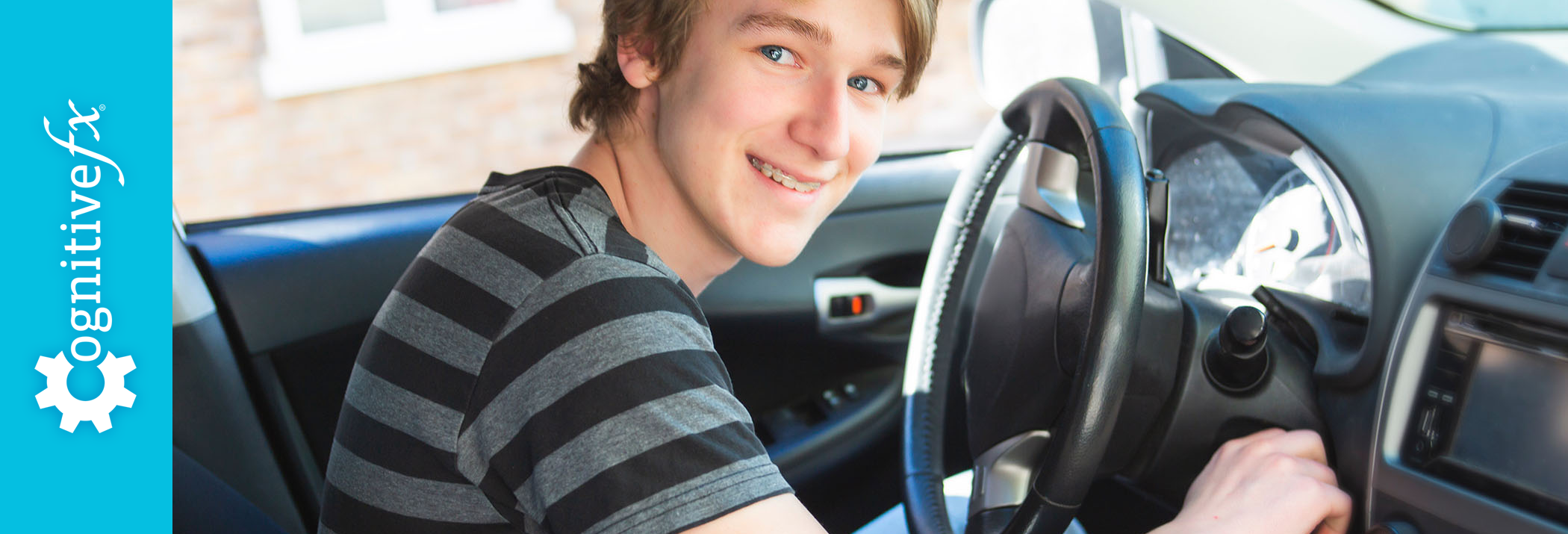This week is Teen Driver Safety Week, and we want to share some statistics and tips on how to keep your new driver safe in the car. Your teen being a newly licensed driver is a big milestone for you and your teen. Handing the keys to the family car to your teen might make you nervous, bringing to mind the dangers broadcasted at you from every media outlet. Not to fear, taking the right steps and supporting your teen to drive safely can make a difference. Below are three of the most common safety issues and tips on how to address these issues with your driving teen.
No.1 Distracted Driving
It’s no secret that distracted driving is dangerous. The National Highway Traffic Safety Administration (NHTSA) states that distracted driving is responsible for 15% of all crashes resulting in injuries and 10% of all crashes that concluded in fatalities. Unfortunately, many of these fatal accidents involve teen drivers.
Teens are aware that distracted driving is dangerous. Over 90% of teens have admitted that they are aware of the dangers of texting while driving. Despite being aware, about a third of teens admitted they send or check texts while driving.
Many teens think they are capable of safely using their cell phones while driving because they are master multitaskers. A teenage brain isn’t a fully developed brain and can only do one thing at a time. Research has shown that the activity in this part of the brain slows by roughly 1/3 when the driver is distracted by a cell phone. Also, it is important to remember that regardless of age, our brain is terrible at multitasking.
No. 2 Impaired Driving
Reminding your teen that underage drinking is illegal, and driving under the influence of any impairing substance including illicit, over-the-counter, and prescription drugs could have deadly consequences. Drinking alcohol while under the age of 21 is illegal in every state. Drunk-driving laws are in place and always strictly enforced by law enforcement. Many states have zero-tolerance laws in place, this means that there can be no trace of alcohol or illegal drugs in your system. This is also the case for Utah with the “Not-A-Drop” law.
Inform your teen that law enforcement officers will be able to test for these substances. Drugs other than alcohol, illicit, prescribed, and over-the-counter can affect your teen’s driving ability so be sure you talk to your teen about driving and drug use.
Some consequences of driving impaired include jail-time, the loss of their driver's license, and dozens of expenses like attorney fees, court costs, other fines, and insurance hikes. They could also stand to lose academic eligibility, college acceptance, and scholarship awards. Share this fact sheet with your teen on your residing state’s law so they are aware of the consequences for breaking driving laws.
No. 3 Buckle Up
The National Highway Traffic Safety Administration (NHTSA) reports that seat belt use is lowest among teen drivers. Inform your teen the grim stats, the majority of teenagers involved in fatal crashes are unbuckled. Inform your teen that it’s the law to wear a seatbelt, and you can be fined up to $86 for not wearing your seatbelt. Wearing a seatbelt is one of the easiest and most effective actions in reducing the chances of death and/or injury in a vehicular crash.
What Can You Do to Support Teen Driver Safety?
- Learn your state’s Graduated Drivers Licensing (GDL) laws. The laws vary state by state, understanding the limitations in place on your teen’s driver license will help you and your teen be aware of your residing state’s restrictions for teen drivers. This opportunity will allow you to set some ground rules with your teen and stress the importance of wearing a seatbelt in the vehicle at all times.
- Inform your teen about the dangers of drug and alcohol abuse. Remind your teen that driving while impaired is illegal and the consequences that follow breaking the law. Remind your teen that it is never safe to ride in a vehicle with an impaired driver.
- Talk to your teen about the rules and responsibilities involved with driving. Share stories and statistics related to teens driving while distracted. Remind your teen that driving is a skill that requires the driver's full attention. Texts and phone calls can wait until reaching his or her destination.
- Be a good role model by always wearing your seat-belt in the car. Children who grow up watching their parents practice driver safety are more likely to practice safe driving when they drive.
Take time this week to begin the conversation with your teen about the responsibility and the importance of driving safe. At Cognitive FX, we not only treat post-concussion symptoms or brain injury but we want to bring awareness to other ways you can be injured. Knowing the risks of injury and the impact an injury can have on the quality of life are important to raise awareness and to lower the risks for a concussion or brain injury.






